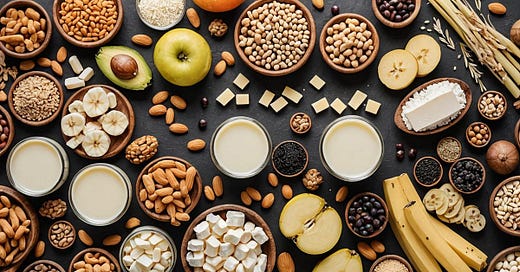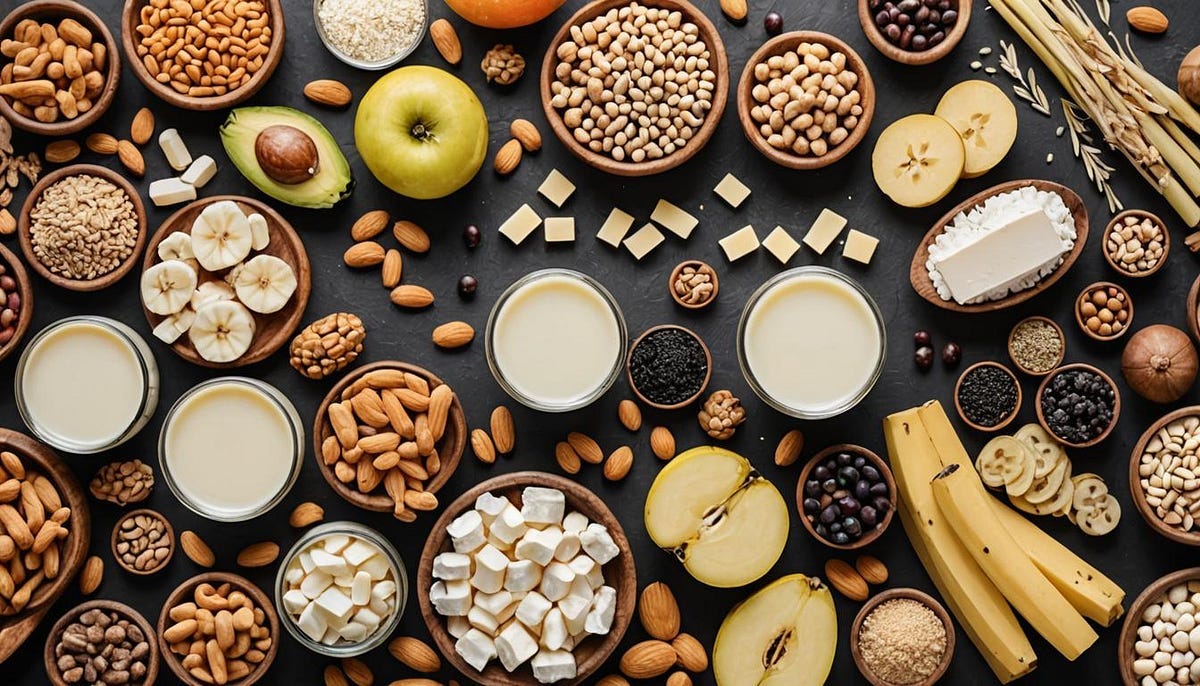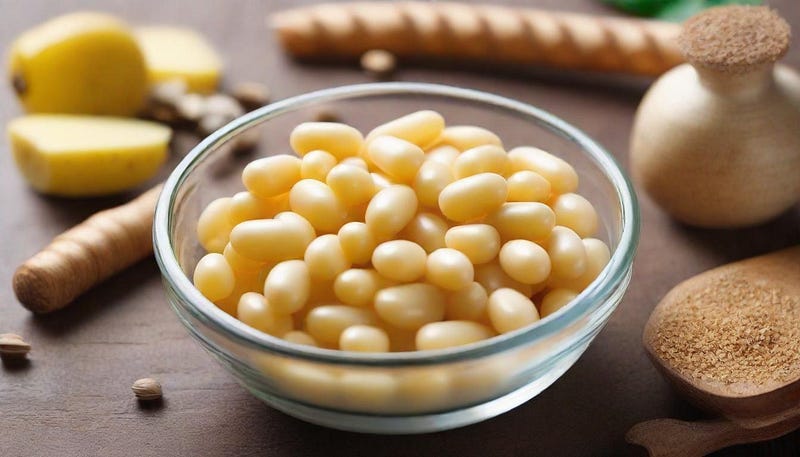Looking at the link between weight loss and prebiotics
I am fascinated by the role of the gut micobiome, and in particular, the area of probiotics and prebiotics.
I personally enjoy probiotics in my diet including kefirs and yoghurts, but because I am a bit picky with my food, tend not to eat the foods that are mainly touted as best for getting prebiotics into the gut.
But firstly. a rough description on what prebiotics and probiotics are and where to get them.
Generally probiotics are live cultures of various strains of bacteria that commercially get added to kefirs and yogurts, and prebiotics are the foods that the gut bacteria feed and thrive on, and are represented in what we term as fibre and roughage, that is the indigestible parts of food that survive the stomach’s digestive process, and reach the lower gut or colon where they are fermented and broken down by the microbial inhabitants there.
Let me concentrate here on the prebiotics and their benefits.
Definition and function
Definition: Prebiotics are specialized plant fibres that the human body cannot digest. They serve as food for the beneficial bacteria in the gut
Function: Prebiotics stimulate the growth and activity of beneficial gut bacteria. They pass through the digestive system undigested and reach the colon, where they are fermented by the gut microbiota. This fermentation process produces short-chain fatty acids that are beneficial for gut health and overall metabolic health.
Sources — where do we get them from
- Common sources include fibre-rich foods such as:
- Fruits: Bananas, apples (especially the skin), berries, tomatoes
- Vegetables: Artichokes, asparagus, garlic, onions, leeks, dandelion greens, chicory root
- Grains and legumes: Oats, whole-wheat bread, barley, quinoa, beans, peas.
Health benefits — what do they do
- Promote the growth of beneficial bacteria in the gut
- Improve metabolic health
- Enhance immune function
- Reduce inflammation
Support digestive health by improving bowel regularity and reducing the risk of gastrointestinal disorders.
Interaction and synergy
Prebiotics and Probiotics Together:
- Prebiotics and probiotics work synergistically to promote gut health. Prebiotics provide the necessary nutrients for probiotics to thrive, enhancing their effectiveness. This combination is often referred to as synbiotics.
Recently, there has been interest amongst nutritionists and diet gurus about the use of prebiotics in weight reduction, and particularly around their benefits in reducing belly-fat.
Is there any foundation in this?
Several studies and sources highlight the role of prebiotics in targeting abdominal fat, including visceral fat, which is the fat stored around internal organs in the abdominal cavity.
Mechanisms of action — how do they work
1. Reduction in Caloric Absorption: Prebiotics can interfere with the absorption of calories, leading to fewer calories being stored as fat. This mechanism helps in reducing abdominal fat.
2. Increased Satiety: Prebiotics are fibres that help you feel full faster and for longer periods, reducing overall caloric intake. This can lead to a decrease in belly fat as you consume fewer calories.
3. Fermentation and SCFA Production: In the large intestine, prebiotics ferment and produce short-chain fatty acids (SCFAs) like butyrate, propionate, and acetate. These SCFAs help suppress appetite and support the growth of beneficial gut bacteria, which can prevent or correct dysbiosis (an imbalance in gut bacteria) and contribute to weight loss, including the reduction of belly fat.
4. Improved Gut Health: Prebiotics promote the growth of beneficial microorganisms such as Akkermansia muciniphila and Faecalibacterium prausnitzii, which are crucial for gut health. A healthy gut microbiome is linked to better weight management and reduced inflammation, which can help reduce belly fat.
Evidence from studies — the proofs
A study published in the BMC journal of Genes and Nutrition found that prebiotic/probiotic supplementation was associated with a significant reduction in visceral adipose tissue (VAT) at 60 days (37%) and 90 days (35%), compared to a placebo group that saw a slight, non-significant increase in VAT..
Research published in the Journal of Functional Foods suggests that prebiotic fibre may help prevent intestinal fat absorption, effectively reducing abdominal fat. The study indicated that prebiotic fibre interfered with calorie absorption, leading to fewer calories being stored as abdominal fat.
Prebiotics help reduce the amount of fat absorbed from food and produce SCFAs that suppress appetite and support the growth of beneficial gut bacteria. This combination helps in reducing belly fat and maintaining a healthy weight.
So, prebiotics can specifically help reduce belly fat through mechanisms such as reducing caloric absorption, increasing satiety, improving gut health, and producing beneficial SCFAs. These effects are supported by various studies and research findings, making prebiotics a valuable component in weight loss strategies targeting abdominal fat.
But, here is the key question:
Can prebiotics alone lead to significant weight-loss without dietary changes?
Looking into all the studies, I think the answer is probably no.
While prebiotics can support a healthy gut microbiome and may aid in weight loss efforts, the provided sources do not present strong evidence that prebiotics alone, without accompanying dietary changes or caloric restriction, can lead to significant weight loss.
Most studies suggest that prebiotics are more effective for weight loss when combined with a calorie-controlled diet, increased physical activity, or other lifestyle modifications.
References:
Prebiotic (nutrition) — Wikipedia
Can Prebiotics Help with Weight Loss? (omnibioticlife.com)
How to lose visceral fat: Treatment may include prebiotic and probiotic supplements | Express.co.uk
Weight loss: Could prebiotic inulin supplements help? (medicalnewstoday.com)






